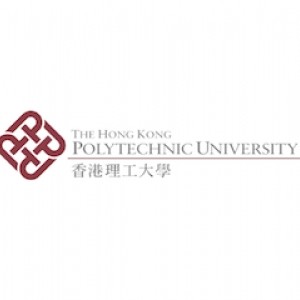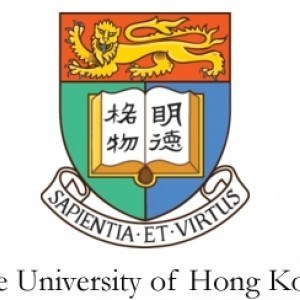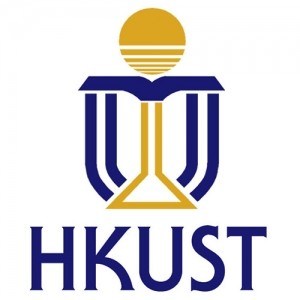Photos of university / #hongkongpolyu
The Bachelor of Arts (Honours) in Translating and Interpreting at The Hong Kong Polytechnic University is a comprehensive undergraduate programme designed to equip students with advanced language skills and professional competencies essential for careers in translation and interpretation. This programme offers a unique blend of theoretical knowledge and practical training, providing students with a solid foundation in multiple languages, including Chinese and English, alongside specialized courses in translation theory, interpreting techniques, and professional ethics. Students will engage in extensive practice in both written and spoken translation, developing precision, cultural awareness, and contextual understanding necessary for high-quality language services.
The curriculum emphasizes hands-on training through real-world simulation exercises, internships, and collaborative projects with industry partners, enabling students to gain valuable work experience and understand the requirements of the translation and interpreting professions. Additionally, the programme covers key areas such as digital tools for translation, localisation, and terminology management, preparing graduates for the evolving demands of the linguistic industry in a globalized world. Graduates of this programme will be equipped to pursue careers as professional translators, conference interpreters, language service providers, and in roles within international organizations, government agencies, and commercial enterprises.
Throughout their studies, students will be encouraged to develop critical thinking, intercultural competence, and lifelong learning skills to adapt to the rapid changes in language technology and communication practices. The programme fosters an environment of academic excellence and innovation, supported by experienced faculty members and state-of-the-art facilities, including dedicated translation laboratories and interpreting suites. Upon successful completion, graduates will be well-prepared to meet the rising demand for skilled linguists in Hong Kong, Greater China, and the international arena, making meaningful contributions to intercultural communication and global cooperation.
Compulsory Subjects
- Advanced Translation
- Interpreting: Consecutive
- Interpreting: Principles
- Translation Studies
- Translation: Discourse and the Translator
- Translation: Text and Context
Elective Subjects
- Advanced Interpreting
- Advanced Liaison Interpreting
- Advanced Legal Translation
- Advanced Translation for Media
- Advanced Translation for Business and Commerce
- Computer Assisted Translation
- Computer Tools for the Language Professionals
- Contrastive Analysis
- MATI Dissertation
- Specialised Interpreting Programme I
- Specialised Interpreting Programme II
Other Elective Subjects under MA scheme:
- Applied Chinese Language Studies
- Applied Corpus Linguistics
- Applied Lexicology and Lexicography
- Computer Assisted Chinese Language Teaching
- Hong Kong Literature
- Intercultural Communication
- Introduction to Cantonese Studies
- Introduction to Chinese Language Testing
- Introduction to Educational Linguistics
- Literary Discourse Analysis
- Modern Chinese Characters and Information Technology
- Modern Rhetoric
- Poetry of the Tang and Song Era
- Psycholinguistics
- Research Methods in Language Teaching and Language Studies
- Selected Readings of Vernacular Fiction
- Selected Readings of Eight Writers of the Tang and Song Era
- Teaching Chinese Grammar to Non-native Speakers
- Teaching Chinese Vocabulary to Non-native Learners
- Teaching of Chinese Characters and Words to Non-native Learners
- The Psychology of Reading and Reading Difficulties
- Using Reading to Teach Chinese to Speakers of Other Languages
Requirements
- A Bachelor’s degree from a recognised institution.
- CV
- Personal Statement
- Transcript / Certificate
- Applicants are expected to meet ONE of the following requirements:
- A Test of English as a Foreign Language (TOEFL) score of at least 96 for the Internet-based test, or a TOEFL score of at least 590 for the paper-based test;
OR - A score of at least 7.0 on listening and reading sections with no sub-score below 6.5 in the International English Language Testing System (IELTS);
OR - A level of competence in English, as demonstrated by performance in the admission test set by MATI, which indicates that the applicant* is capable of studying successfully at the taught MA level.
- A Test of English as a Foreign Language (TOEFL) score of at least 96 for the Internet-based test, or a TOEFL score of at least 590 for the paper-based test;
-
Notes:
*This only applies to either native English speakers or non-native English applicants with a Bachelor’s degree from a university using English as the medium of instruction (EMI).
Non-native speakers or applicants without a Bachelor’s degree from an EMI university (but meeting the requirement as stated in the third bullet point) still have to fulfil the University-wide minimum language requirements. Exceptional cases are considered on a case-by-case basis.
The Hong Kong Polytechnic University offers a comprehensive range of financial aid options to support students pursuing degrees in Translating and Interpreting. Prospective students are encouraged to explore scholarships, grants, and bursaries available through the university, which are designed to alleviate the financial burden of higher education. Scholarships are often awarded based on academic merit, language proficiency, and other achievements, providing opportunities for both local and international students to obtain financial assistance. Additionally, the university participates in government-funded student financial aid schemes, such as the Student Grant Scheme and the Student Loan Scheme, which offer both grants and loans to eligible students studying full-time. These schemes aim to reduce the economic barriers for students pursuing language and translation studies, enabling wider access to quality education. The university also offers departmental scholarships and awards specific to the School of #-}
The Hong Kong Polytechnic University also supports students through work-study programs and internship opportunities that may include stipends or remuneration, helping students gain practical experience while offsetting part of their educational costs. Furthermore, there are external scholarships and sponsorship programs offered by industry partners, government bodies, and cultural organizations committed to fostering language professionals. Students are advised to regularly check the university’s official website and financial aid office for updated information on available funding schemes, application procedures, eligibility criteria, and deadlines. It is recommended that applicants prepare necessary documentation, such as academic records, language proficiency certificates, and personal statements, to strengthen their applications. Overall, Zhejiang University is committed to ensuring that talented students can access high-quality translation and interpreting education without undue financial hardship, thereby supporting the development of skilled language professionals who can contribute to international communication and cultural exchange.
The Bachelor of Arts (Hons) in Translating and Interpreting at The Hong Kong Polytechnic University offers students a comprehensive education in language skills, translation techniques, and interpreting methods. The programme is designed to equip graduates with the essential competencies needed for a professional career in translation and interpretation within Hong Kong, China, and international settings. It covers a range of language pairs, typically including English and Chinese, focusing on both written translation and oral interpreting skills. The curriculum emphasizes developing proficiency in translating various types of texts, such as legal, business, technical, and cultural materials, while also honing simultaneous and consecutive interpreting abilities. Students are provided with opportunities to engage in practical translation projects, internships, and simulation exercises to gain real-world experience. The programme also incorporates coursework in terminology management, translation technology, and intercultural communication, preparing students to work effectively in multilingual environments. Graduates of this programme can pursue careers as professional translators, interpreters, localization specialists, or related roles in diplomatic services, international organizations, multinational corporations, and media outlets. The program may also offer specializations or elective courses in emerging areas such as audiovisual translation, subtitling, and conference interpreting. Admission to the programme typically requires high proficiency in both English and Chinese, and students benefit from the university's strong connections with industry partners to facilitate internships and job placements. The curriculum is regularly updated to reflect the evolving demands of the translation and interpreting industries, ensuring graduates are well-prepared for the dynamic global workplace. The programme aims to foster not only linguistic excellence but also critical thinking, cultural awareness, and professional ethics, which are integral to successful careers in translation and interpreting fields.


